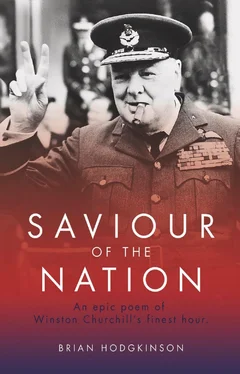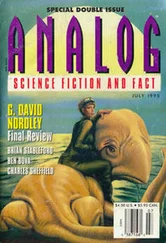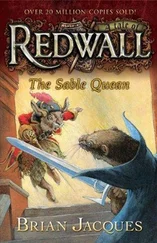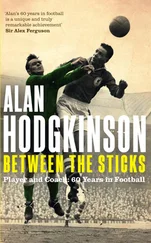Appealed to values shared: a common tongue,
The love of freedom, and a firm belief
In what the founding fathers had decreed –
That no one is above the rule of law –
As one man was in Nazi Germany.
Already, in his mind, he had conceived
The vision of a western partnership,
A grand alliance, whose abundant wealth
Would render it, in time, invincible.
Meanwhile Hitler raged against the Poles,
And, on a pretext, German armies struck.
A battleship bombarded Danzig’s port.
From London Neville Chamberlain still sent
A last despairing plea to save the peace.
The German Chancellor did not reply.
In Parliament the nation’s will was heard,
When ‘Speak for England’ echoed round the House.
An ultimatum finally was sent.
No answer came. The British were at war;
And with them stood, as once before, the French.
5
Dreadnoughts and Dardanelles
Autumn 1939
This moment of impending tragedy
Brought forth, at last, the call to genius.
Churchill returned to his old offices
Within the British Board of Admiralty.
Throughout the fleet resounded now the cry,
‘Winston is back!’ and older men recalled
How he’d prepared the battle-fleet for war
Against the Kaiser’s mighty Kriegsmarine .
Inside a cupboard lay the very maps
On which he’d plotted, day by day, the course
Of every ship that flew the emperor’s flag.
How often then he’d spoken of the need
To build more Dreadnoughts, in excess of those
Envisaged in the German naval laws.
As he had said, it was a luxury
For Germany to have such battleships;
But, for the British, they meant life or death.
He had proposed a moratorium:
That each should stop construction for a year,
But when it was refused, he’d had no choice;
The race continued, even unto war.
What pride and admiration he had felt
For those great iron-clad monsters of the deep,
With massive guns that fired their one ton shells,
And mighty turbine engines, powered by oil,
Which he himself had bought from Persian fields
When he had overseen the change from coal.
How many days he’d passed inspecting them
At British ports from Plymouth to Rosyth.
How long he’d sat with Fisher and the rest,
In smoke-filled rooms, debating strategy.
They had abandoned any close blockade
For fear of meeting new torpedo boats.
Instead the northern seas were now patrolled
To stop the German battleships’ escape
Into the vast Atlantic, where they’d roam
Across the routes of British merchantmen.
So, too, he now remembered how they’d shipped
The British army safely off to France
To fight at Mons, and later on the Marne;
And then the dreaded telegraph that told
Of British warships lost at Coronel
To von Spee’s squadron; his profound relief
On hearing how the British were avenged.
He still imagined what the Germans felt
On seeing, to their uttermost surprise,
The tripod masts of Dreadnoughts in their base
Within the Falkland Islands; how they’d fled,
But soon were overhauled, and could not match
The mighty guns of British battleships.
As Churchill sat there, in that very chair
In which he’d planned the Dardanelles campaign,
His heart contracted with the bitter thoughts
Of futile carnage on those Turkish shores.
As First Lord of the Admiralty, he’d sent,
To force the passage, every ship required.
Alone they would destroy the Turkish forts,
Then sweep the minefields, cross the inner sea,
And threaten to bombard the helpless seat
Of Turkish power, the Sultan’s capital.
The Black Sea would be open to the world,
The Russians saved from imminent defeat,
The Danube valley swiftly overrun.
And Allied armies on the western front
Would no more bleed their toll of youthful life.
In vain he had protested at the fears
That halted naval action in the Straits.
What were those losses, set against the deaths
Of thousand thousands on the fields of France?
And yet he’d still supported what was planned:
The seizure of the long peninsula
That held the Turks’ defensive guns and forts.
Kitchener and Fisher wavered still;
The army was delayed for crucial weeks.
He’d feared the Turks would reinforce as fast
As Allied forces landed. All would turn
On rapid movement, overwhelming power.
No longer did the navy have control.
He’d argued fiercely, strove to introduce
His own conviction, energy and drive.
The soldiers had not faltered – British, French
And Anzac units left upon the shores,
Below the cliffs and wire entanglements.
Mobility was lost. Like those in France,
They’d dug their trenches, held their ground, and died.
Upon his shoulders fell the greatest blame
For all the errors of Gallipoli.
For he had been its strongest advocate,
The spokesman of the ‘eastern strategy’.
From this disaster he had learnt one rule:
Never to be responsible again
For any task for which he lacked the power.
Dismissed from office, henceforth he was thought
A man who had no judgment. Then he’d believed
That his whole life was ruined, with no hope
That all his pent-up energy and skill
Could find a proper outlet. He’d not seen
How his beloved Clementine knew more.
She wrote to Asquith: ‘Winston may have faults,
But he has what but very few possess:
The power, imagination – deadliness –
To fight the Germans.’ And his own response
Was to enlist to fight them then in France.
6
The Admiralty at War
Winter 1939
Most urgent of the many weighty tasks
That bore upon him now, on his return,
Was how to meet the ever present threat
Of German U-boats. British merchant ships,
On which the life of every islander
Depended now, as always, were at risk.
Harsh memories returned of countless ships
Torpedoed in the former German war.
But counter-measures swiftly were in place.
Churchill had learnt that convoys greatly eased
The passage of the mercantile marine.
Now captains were instructed to obey
The common rules of safety, zig-zag routes
And arming of their vessels. Orders rose
For more destroyers and for trawlers, too,
Which fitted with new Asdics could detect
The prowling U-boats deep within the sea.
In vain, however, did the new First Lord
Demand control of vital Irish ports,
For Eamon de Valera still recalled
The hated Black and Tans Churchill had sent
Against the Irish rebels of Sinn Fein.
Dramatic proof was given of the skill
Of German sailors, when at Scapa Flow,
The inland harbour sheltered by the hills
Of Orkneys’ islands, one bold U-boat sank
The Royal Oak at her moorings, with the loss
Of hundreds of her officers and men.
And German science offered further threats:
Magnetic mines below the waterline
Sank many vessels, till a way was found
To neutralise the mines’ magnetic force
By means of cables girdling every ship.
Churchill was no scientist, yet he knew
How best to manage others’ expertise.
He had recourse most often to his friend,
Professor Frederick Lindemann, by whom
He was informed of scientific news
That bore upon the war. Much use was made
Of figures showing trends: in shipping lost,
New output and the turnover in ports.
Читать дальше












